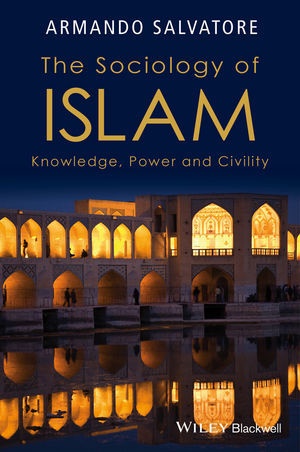Read more
Informationen zum Autor Armando Salvatore is Professor of Global Religious Studies at McGill University, Montreal, and Professor at the Centre for Arab & Islamic Studies of the Australian National University, Canberra. His work as a social scientist emphasizes transregional comparison and explores the Islamic ecumene's socio-political trajectories as well as transcultural interconnections. As a complement to The Sociology of Islam he is editing The Wiley Blackwell History of Islam . Among his previous works are Islam and the Political Discourse of Modernity (1997), Public Islam and the Common Good (edited with Dale F. Eickelman, 2004), The Public Sphere: Liberal Modernity, Catholicism and Islam (2007), and Islam and Modernity: Key Issues and Debates (edited with Muhammad Khalid Masud and Martin van Bruinessen, 2009). Klappentext The Sociology of Islam is an interpretive account of Islam as a religion and civilization in world history and global society, which focuses on the notions of knowledge-culture, power and civility to provide key interpretive and analytic tools to practitioners.* The first substantial introduction to the field of the Sociology of Islam that combines theoretical reflections with historical analysis* Explores the original civilizational trajectory of Islam and its specific entry point into modernity* Develops a narrative and analytic thread that makes the 'dual' role of Islam - as a religion and civilization - comprehensible to non-specialists* Allows Islamic Studies specialists and students to locate the study of Islam in a comparative perspective with the help of simple, yet rigorous conceptual tools drawn from sociology and social theory* The author is a scholar of both the Sociology of Islam and Comparative Civilizational Analysis and ideally placed to write this text Zusammenfassung The Sociology of Islam provides an accessible introduction to this emerging field of inquiry, teaching and debate. The study is located at the crucial intersection between a variety of disciplines in the social sciences and the humanities. Inhaltsverzeichnis Preface and Acknowledgments ix Introduction 1 Knowledge and Power in the Sociology of Islam 1 Knowledge/Charisma vs. Power/Wealth: The Challenge of Religious Movements 18 Civility as the Engine of the Knowledge-Power Equation: Islam and 'Islamdom' 23 Part I Patterns of Civility 1 The Limits of Civil Society and the Path to Civility 43 The Origins of Modern Civil Society 43 Civil Society as a Site of Production of Modern Power 50 Folding Civil Society into a Transversal Notion of Civility 57 2 Brotherhood as a Matrix of Civility: The Islamic Ecumene and Beyond 73 Between Networking, 'Charisma,' and Social Autonomy: The Contours of 'Spiritual' Brotherhoods 73 Beyond Sufism: The Unfolding of the Brotherhood 85 Rewriting Charisma into Brotherhood 92 Part II Islamic Civility in Historical and Comparative Perspective 3 Flexible Institutionalization and the Expansive Civility of the Islamic Ecumene 105 The Steady Expansion of Islamic Patterns of Translocal Civility 105 Authority, Autonomy, and Power Networks: A Grid of Flexible Institutions 114 The Permutable Combinations of Normativity and Civility 118 4 Social Autonomy and Civic Connectedness: The Islamic Ecumene in Comparative Perspective 131 New Patterns of Civic Connectedness Centered on the 'Commoners' 131 Liminality, Charisma, and Social Organization 140 Municipal Autonomy vs. Translocal Connectedness 147 Part III Modern Islamic Articulations of Civility 5 Knowledge and Power: The Civilizing Process before Colonialism 165 From the Mongol Impact to the Early Modern Knowledge-Power Co...

